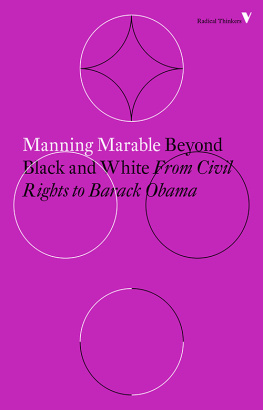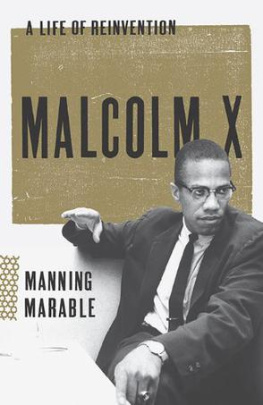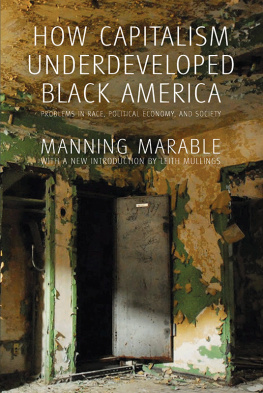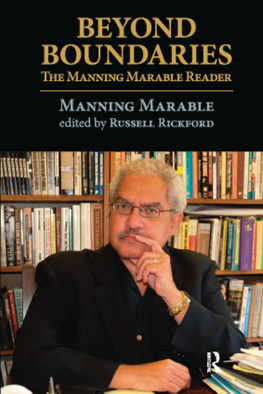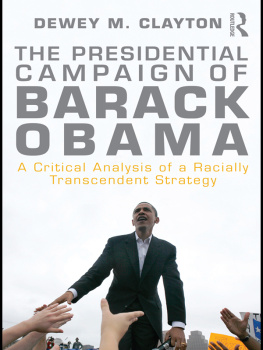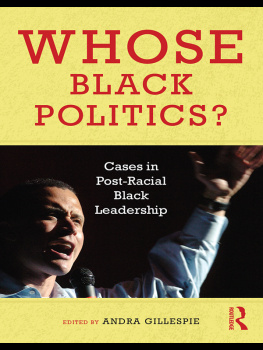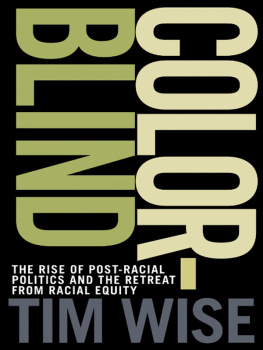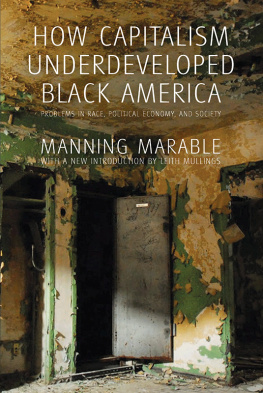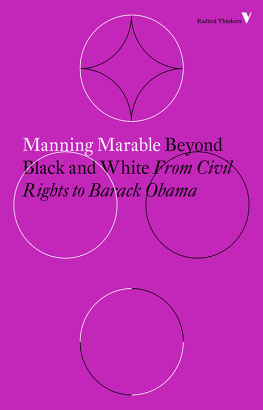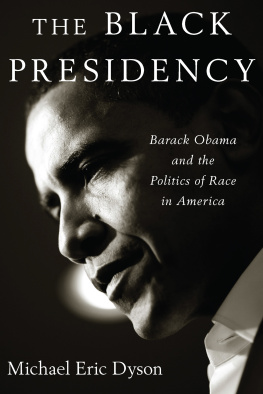T he following essays, several of which have been revised for this collection, have been previously published: Black America in Search of Itself first appeared in The Progressive, vol. 55, no. 11 (November 1991). Race and Realignment in American Politics was published originally in Mike Davis, Fred Pfeil and Michael Sprinker, eds., The Year Left: An American Socialist Yearbook, vol. 1 (London: Verso, 1985). At the End of the Rainbow first appeared in Race and Class, vol. 34, no. 2 (OctoberDecember 1992). Race and Class in the US Presidential Election of 1992 was published originally in Race and Class, vol. 34, no. 3 (JanuaryMarch 1993). A shorter version of Politics, Personality and Protest in Harlem: The RangelPowell Congressional Race was published in The Village Voice, September 13, 1994. Clarence Thomas and the Crisis of Black Political Culture first appeared in an anthology edited by Toni Morrison, Race-ing Justice, En-Gendering Power: Essays on Anita Hill, Clarence Thomas, and the Construction of Social Reality (New York: Pantheon Books, 1992). Blueprint for Black Studies was presented at a conference on African-American Studies at the University of Wisconsin-Madison, in April 1991, and was later published in The Black Scholar, vol. 22, no. 3 (Summer 1992). Black Studies, Multiculturalism and the Future of American Education first appeared in the JuneSeptember 1995 issue of Items, the newsletter of the Social Science Research Council, New York. Malcolm as Messiah: Cultural Myth versus Historical Reality first appeared in Cineaste, vol. 19, no. 4 (1993). Memory and Militancy in Transition: The 1993 March on Washington first appeared in Race and Class, vol. 35, no. 3 (JanuaryMarch 1994). An earlier version of Benjamin Chavis and the Crisis of Black Leadership was published in Blueprint for Social Justice, vol. 18, no. 2, October 1994. Black Intellectuals in Conflict first appeared in New Politics, vol. 5, no. 3 (Summer 1995). African-American Empowerment in the Face of Racism: The Political Aftermath of the Battle of Los Angeles first appeared in the Black Collegian, vol. 23, no. 1 (SeptemberOctober, 1992). Beyond Racial Identity Politics: Toward a Liberation Theory for Multicultural Democracy first appeared in Race and Class, vol. 35, no. 1 (JulySeptember 1993). The Divided Mind of Black America: Race, Ideology and Politics in the Post-Civil-Rights Era was written in the winter and spring of 1994 in collaboration with Leith Mullings, Professor of Anthropology at the City University of New York Graduate School, and was published originally in Race and Class, vol. 36, no. 1 (JulySeptember 1994). History and Black Consciousness: The Political Culture of Black America was published in Monthly Review, vol. 47, no. 3 (JulyAugust 1995). Harlem and the Racial Imagination: Reflections on the Million Youth March first appeared in Souls, vol. 1, no. 1 (1999). The Political and Theoretical Contexts of the Changing Racial Terrain first appeared in Souls, vol. 4, no. 3 (2002). Reparations and the Politics of Black Consciousness first appeared in the Free Press (8 August 2002) under the title Reparations, Black Consciousness, and the Black Freedom Struggle. Katrinas Unnatural Disaster: A Tragedy of Black Suffering and White Denial first appeared in Souls, vol. 8, no. 1 (2006). Racializing Justice, Disenfranchising Lives: Toward an Anti-Racist Criminal Justice first appeared as the preface to an anthology edited by Manning Marable, Keesha Middlemass and Ian Steinberg, Racializing Justice, Disenfranchising Lives: The Racism, Criminal Justice and Law Reader (New York: Palgrave Macmillan, 2007). Blackness beyond Boundaries: Navigating the Political Economies of Global Inequality first appeared as the introduction to an anthology edited by Manning Marable and Vanessa Agard-Jones, Transnational Blackness: Navigating the Global Color Line (New York: Palgrave Macmillan, 2008). Barack Obama, the 2008 Presidential Election and the Prospects for a Post-Racial Politics first appeared in The Black Commentator, no. 306 (8 January 2009) under the title Racializing Obama: The Enigma of Post-Black Politics and Leadership.
The storm is rising against the privileged minority
of the earth, from which there is no shelter in isolation
or armament. The storm will not abate until a just distribution
of the fruits of the earth enables men everywhere to live in
dignity and human decency. The American Negro may be
the vanguard of a prolonged struggle that may change the shape
of the world, as billions of deprived shake and transform the
earth in their quest for life, liberty, and justice.
Martin Luther King, Jr.
B eyond Black and White was written largely in the four years between 1991 and 1995, when I was employed at the University of Colorado at Boulder and, after 1993, at Columbia University. Because the volume is a collection of political and social essays, written at different times and in response to various events, from the Senate Judiciary Committee hearings regarding the nomination of Clarence Thomas to the US Supreme Court to the Los Angeles civil uprising of AprilMay 1992, there is a certain amount of repetition and restatement of political ideas. As the book was being written, I was forced to reassess many of my older ideas about the character and relative permanence of race, and its impact within American politics. But despite the diversity of topics considered within the essays, there is a conjunctural and theoretical unity expressed within the work as a whole.
The main thesis of the book is that race as it has been understood within American society is being rapidly redefined, along with the basic structure of the economy, with profound political consequences for all sectors and classes. The massive flood of both legal and undocumented workers from Third World countries seeking low-wage employment, for example, has sharply transformed the ethnic, cultural and social composition and character of thousands of urban working-class neighborhoods and communities. Against this changing social background, our notions of the social categories which convey the day-to-day meaning of black and white have also begun to change, especially within the major cities of the USA. Because this social transformation is occurring at a political conjuncture dominated by conservative ideology and a retreat from welfare state policies, race relations and racial discourse are reflected within an altered debate about the character of discrimination, the nature of prejudice, and invented notions about who the real victims of inequality are. A new generation of white Americans, born largely after the civil-rights movement, felt little or no historical responsibility or social guilt for being the beneficiaries of institutional racism. Racism was described increasingly in the media as a problem of the historical past, not a contemporary problem of inequality with practical consequences for the oppressed. The political discourse in the 1990s which has focused on controversial issues of public policies such as affirmative action, welfare reform and the rights of undocumented immigrants, directly reinforced the perception that white elite males somehow had become the most oppressed social class in the country.

